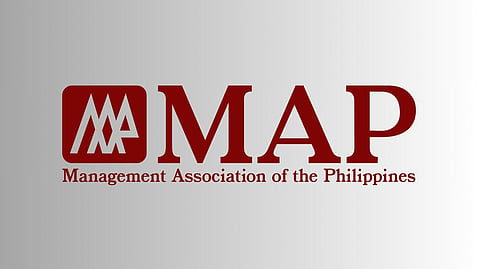
- NEWS
- the EDIT
- COMMENTARY
- BUSINESS
- LIFE
- SHOW
- ACTION
- GLOBAL GOALS
- SNAPS
- DYARYO TIRADA
- MORE

The Management Association of the Philippines (MAP) and a regional trade group have called on both the House of Representatives and the Senate to hold longer talks with stakeholders affected by the P200 legislated wage hike, recently passed by Congress, adding that they are opposing the proposed bill.
“Since setting a minimum wage is a very complex process where many factors have to be taken into account, we call on the bicameral conference committee of the House and the Senate to conduct further consultations with all affected sectors, like employers, employees, consumers, involved agencies, among others, before reaching a decision,” the group, signed by its president Al Panlilio and MAP National Issues Committee chairperson, said in a statement on Monday.
A total of 171 congressmen signed off on the proposal to increase the minimum wage hike for private sector workers by P200, with a lone lawmaker abstaining.
The MAP further urged the bicam to consider the potential impact of the P200 daily wage increase on inflation and business sustainability, particularly on the millions of small enterprises that struggle just to survive.
It also suggested the proposal to undergo further review on whether setting a national minimum wage or a regional review.
“Our basic problem is not low wages, but high costs. We believe that attention should be given to the wage-to-cost ratio, not just wages. We have the third-highest minimum wage in Asia, and some of the highest costs, especially of food, power, transportation, and housing,” the MAP said.
Moreover, the group encouraged the Executive and Legislative branches of government to focus on reducing those costs to help make our country more export-competitive and to address inefficiencies across all sectors, thereby improving overall productivity and reducing all forms of waste.
“We also appeal to employers to help alleviate the plight of the minimum-wage earners by implementing urgent measures, like paying their employees’ share in SSS, Pag-IBIG and PhilHealth contributions, sharing with their employees at least 20 percent of their organizations’ net income before tax, among others,” it said.
The MAP maintained that they support initiatives that help improve the lives of all minimum-wage-earning Filipino workers and their families, but do not support the P200 daily wage increase.
Earlier, the Employers Confederation of the Philippines and the Philippine Chamber of Commerce also aired disagreements on the P200 legislated wage hike proposal.
But Malacañang Palace assured that President Ferdinand Marcos Jr. will look at the economic implications of the proposed bill and “how to resolve these with the opinion of the wage boards, since the wage boards are also the creations of Congress. So, all concerns of all stakeholders will be scrutinized and considered.”
Fair wages not via legislation
The Mandaue Chamber of Commerce and Industry (MCCI) also expressed support for fair wages for workers, but not through the legislated daily increase of P200.
MCCI president Mark Ynoc emphasized the need to adopt a fair and well-thought-out approach to adjusting wages.
Citing the potential impact on businesses and the broader economy on the P200 daily minimum wage increase.
“While we strongly support fair compensation for workers, we also recognize the significant challenges that businesses continue to face in the current economic environment,” he said.
He suggested that wage increases should be evidence-based, considering both workers’ rights and the stability of businesses.
Ynoc stressed that wage hikes should be based on performance and experience, rather than being across-the-board.
He proposed the creation of regional wage boards for different industries to allow adjustments based on each area’s economic conditions and the capacity of large, medium, and small enterprises.
Such a system would ensure a more equitable and sustainable solution that supports both workers and businesses.
